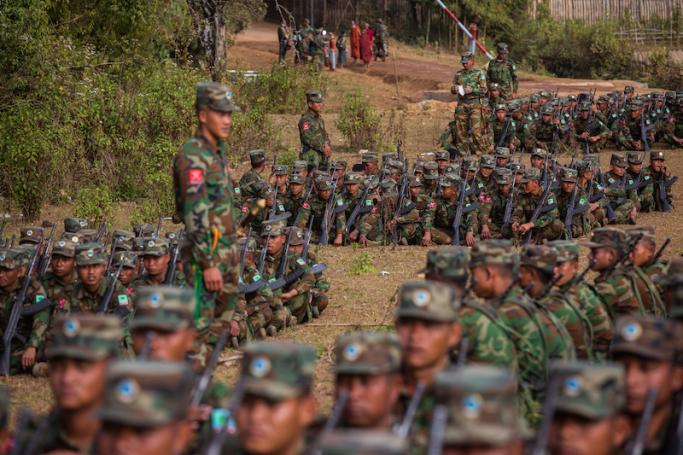The ultimate goal of Myanmar’s Spring Revolution is to establish a new federal democratic union with a change of system instead of just regime change, according to a joint statement by the National Unity Consultative Council (NUCC) and National Unity Government (NUG) on 6 August.
The statement titled ‘Common Position of Revolutionary Organizations Fighting Together in the Spring Revolution’ said that current illegal military seizure of power must be permanently removed, along with permanently ending the custom of military coups and the involvement of the military in politics.
It also emphasizes the establishment of a “Federal Union Army” comprised of different ethnic groups, to fight against external threats, and the federal army will be under the control of a civilian government unconditionally.
The statement mentioned implementing transitional justice mechanisms to address human rights violations, war crimes, crimes against humanity, genocide, and other crimes against generations upon all classes and ethnic groups in successive eras to prevent further such violations.
The NUCC and NUG has rejected political moves that deviate from the vision and values for building a federal democratic union, and pledged to join hands with people of all ethnic groups across the country through collective leadership and collective responsibility on the basis of equality until the ultimate goal of the Spring Revolution is achieved.
The NUCC is formed of 33 member organizations from five categories—the Committee Representing Pyidaungsu Hluttaw, NUG, influential ethnic groups, civil society actors, and trade unionists.
The NUG’s Defence Ministry has formed PDFs in more than 250 townships along with 259 regiments and units. More than 100 of the 354 Local Defence Forces (LDFs) formed in urban and rural areas are affiliated with the NUG’s PDF regiments and units.
In diplomatic efforts, the NUG has opened representative offices in key countries, including in the United States, in February, this year.












